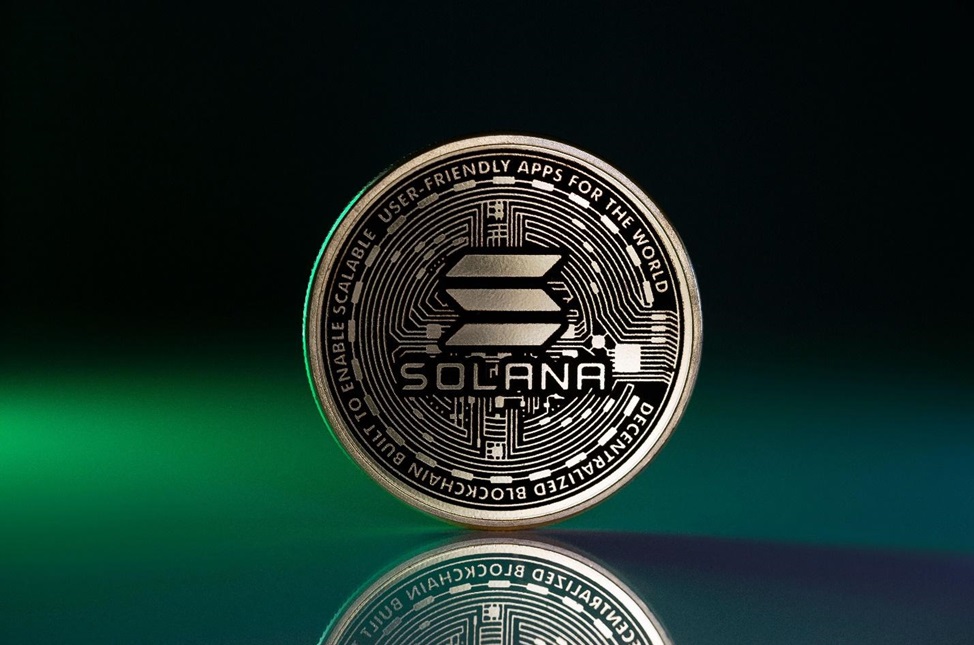Mercurity Fintech Unveils $200M Solana Treasury Strategy to Boost Blockchain Position

Mercurity Fintech Unveils $200 Million Solana Treasury Strategy to Strengthen Blockchain Position
Introduction to the New Treasury Strategy
Mercurity Fintech Holding Inc. (Nasdaq: MFH) has announced a significant development: a $200 million Equity Line of Credit Agreement with an entity known as Solana Ventures Ltd. This initiative is designed to establish a Solana-based digital asset treasury strategy, positioning MFH as a key institutional player within the Solana ecosystem. The strategy focuses on acquiring SOL tokens, generating returns through staking, validator nodes, and decentralized finance (DeFi) protocols, as well as investing in Solana-centric projects, including tokenized real-world assets and financial products.
- Introduction to the New Treasury Strategy
- Complementary Financial Strategies
- Clarification and Market Reactions
- Institutional Interest in Solana
- Long-Term Financial Stability
- Bridging Traditional Finance and Blockchain
- Regulatory Considerations and Controversy
- Potential Legal Implications
- Conclusion: The Future of MFH and Solana
Complementary Financial Strategies
This new strategy aligns with MFH’s broader financial plans, which include a $500 million DeFi basket treasury that encompasses assets like ethereum, XRP, Cardano, and BNB. Importantly, this initiative does not replace MFH’s existing bitcoin investment strategy. Chief Strategy Officer Wilfred Daye emphasized that Solana’s advantages—such as speed, affordability, and regulatory acceptance—are pivotal for this strategic move. However, the announcement has sparked controversy, as Solana Ventures LLC, the official subsidiary of Solana Labs, has publicly denied any involvement in this agreement, asserting that it has not engaged in equity credit lines with public companies.
Clarification and Market Reactions
In response to the controversy, Wu Blockchain reported that MFH clarified the situation, stating that the agreement pertains to a different entity with a similar name to Solana Ventures. Despite this clarification, MFH has not retracted its initial announcement or provided additional details about the entity, leaving some questions unanswered. Following the announcement, Solana’s price surged by 5.46%, elevating its market capitalization to over $100 billion, while MFH’s stock price rose by 2% to approximately $5.
Institutional Interest in Solana
The announcement reflects a growing trend among institutional investors in Solana as a viable blockchain for tokenized assets, DeFi, and real-time payments. MFH’s strategy to accumulate SOL and invest in Solana-based projects could enhance liquidity and foster innovation within the Solana ecosystem. This trend is echoed by other companies, such as DeFi Development Corp., which holds 999,999 SOL, and BIT Mining, which plans to allocate $200–300 million for SOL investments.
Long-Term Financial Stability
MFH’s focus on staking, validator operations, and DeFi protocols presents opportunities for long-term yield generation, potentially improving its financial stability beyond traditional fintech services. The announcement led to a notable increase in MFH’s stock price, with reports indicating a peak rise of 14.09% to $5.16. However, MFH faces financial challenges, including negative profitability and cash flow issues, making the success of this strategy crucial for its valuation.
Bridging Traditional Finance and Blockchain
Wilfred Daye articulated that MFH’s strategy aims to bridge traditional finance with blockchain innovation, leveraging Solana’s speed, cost-effectiveness, and regulatory acceptance to strengthen its market presence. This move mirrors a broader trend of public companies diversifying their treasuries with altcoins like Solana, ethereum, and XRP, following the bitcoin model established by MicroStrategy. This shift involves active participation through staking and DeFi, contrasting with bitcoin‘s passive accumulation approach, but it also carries risks due to the volatility and lower liquidity of altcoins.
Regulatory Considerations and Controversy
The increasing regulatory acceptance of Solana, as noted by MFH, could encourage more firms to adopt similar treasury strategies. However, the controversy surrounding Solana Ventures LLC’s denial of involvement in the $200 million deal raises concerns about MFH’s transparency and due diligence. The company clarified that the agreement involves a different entity, but the lack of retraction or further details creates uncertainty regarding investor trust and could impact MFH’s stock performance and partnerships.
Potential Legal Implications
If “Solana Ventures Ltd.” is indeed unrelated to Solana Labs, MFH’s use of the name could lead to legal scrutiny for potentially misleading investors. Solana Labs may also face reputational challenges if the confusion continues. While the announcement initially boosted both SOL’s price and MFH’s stock, the ongoing controversy could result in varied outcomes for both entities. Continued institutional interest in Solana may sustain its momentum, but MFH’s stock could experience volatility if the situation escalates.
Conclusion: The Future of MFH and Solana
The announcement underscores Solana’s increasing attractiveness for institutional treasury strategies due to its high-performance blockchain and yield-generating capabilities. However, the controversy highlights the critical need for transparency in crypto-finance dealings. MFH’s failure to promptly clarify the identity of “Solana Ventures Ltd.” risks undermining its credibility, especially given its existing financial challenges. The broader trend of altcoin treasuries presents both opportunities and risks, as the volatility and regulatory uncertainties associated with altcoins could lead to amplified losses compared to bitcoin-focused strategies.
In summary, while Mercurity Fintech’s $200 million Solana treasury strategy has the potential to enhance its standing in the blockchain sector and support Solana’s ecosystem, the ongoing controversy regarding Solana Ventures’ involvement creates a divide between optimistic market sentiment and skepticism about MFH’s transparency.







